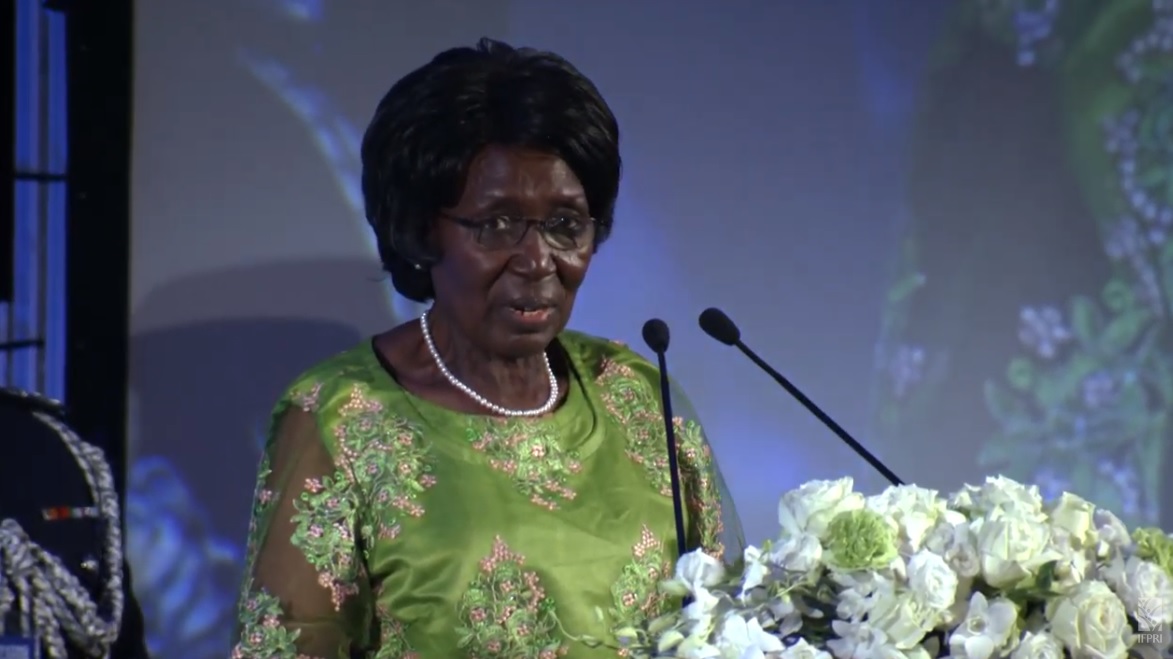Inonge Wina says Zambia to learn strategies from Thailand to end hunger, malnutrition

- Country:
- Zambia
The current Vice President of Zambia, Inonge Wina recently attended a conference, which was organised by the International Food Policy Research Institute (IFPRI) and the Food and Agricultural Organisation (FAO) in Bangkok, Thailand.
The conference was on ‘Accelerating the End of Hunger and Malnutrition’ that took place between November 28 and 30. Inonge Wina has paid a courtesy call on Thailand’s Deputy Prime Minister General Prawit Wongsuwan and held several meetings with different stakeholders who included the United Nations Assistant Secretary General, Coordinator of the Scaling Up Nutrition (SUN) Movement Gerda Verburg, FAO Assistant Director- General, Economic and Social Development Kostas Stamoulis and IFPRI Director General Shenggen Fan, Lusaka Times reported.
“This is the third consecutive year that progress in ending hunger has stalled and now has actually increased (in 2015, 2016 and 2017). Child stunting is a major problem, and nearly two billion still suffer from hidden hunger or a deficiency of important nutrients. This also includes people who are overweight or obese,” FAO’s general director, José Graziano da Silva opined.
According to Wina, Zambia is on the right track to end hunger and malnutrition by 2030 due to long-term investments in agriculture, social protection and development of support physical infrastructure such as roads.
She further added that the nation is all set to learn from the strategies that have worked for countries like Thailand. She extolled the way how Thailand has significantly lessened hunger and malnutrition based on programmes that have had a high positive impact on its population.
She also mentioned among innovations that Zambia had put in place included a multi-sector approach to addressing food and nutrition challenges with high-level political leadership and coordination placed under her Office as well as the development of a Zero Hunger Strategy and long-term Roadmap based on the Cluster approach in line with the seventh national development plan, 2017-2021.










